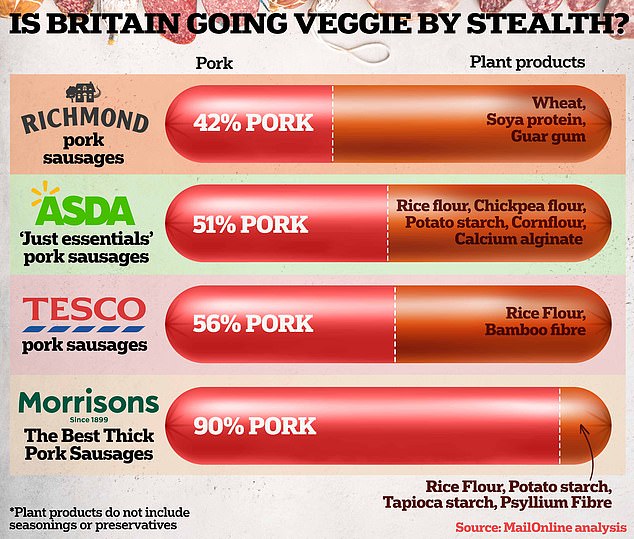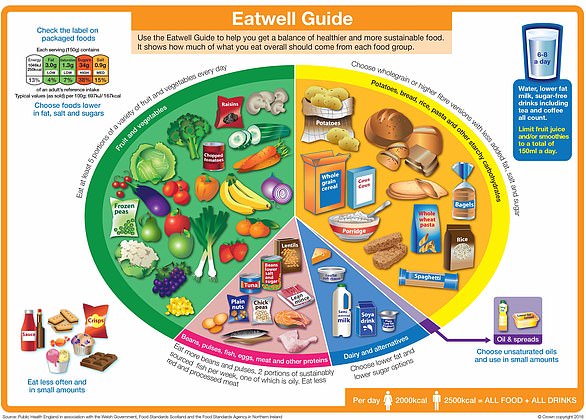Vegetarian food company Quorn revealed earlier this month that it planned to start offering “blended meat” products, surprising both meat-eaters and non-meat eaters.
The half-and-half products will be made up of 50 percent pork or beef and 50 percent of the brand’s signature meat-alternative mycoprotein ingredient, made from mushrooms.
Quorn boss Marco Bertacca said they would first be supplied to NHS hospitals in a bid to make patients’ meals healthier, possibly by the end of the year.
But critics reacted angrily, claiming the move revealed health chiefs had a hidden agenda to make Britain go “covert vegetarian”.
Now, MailOnline has discovered that this practice may have been going on for some time and that many meat products are actually far less meaty than many people believe.
Here, MailOnline reveals the pork sausages on supermarket shelves with the lowest meat content and what surprising plant-based additives, such as seaweed and bamboo, they already contain.
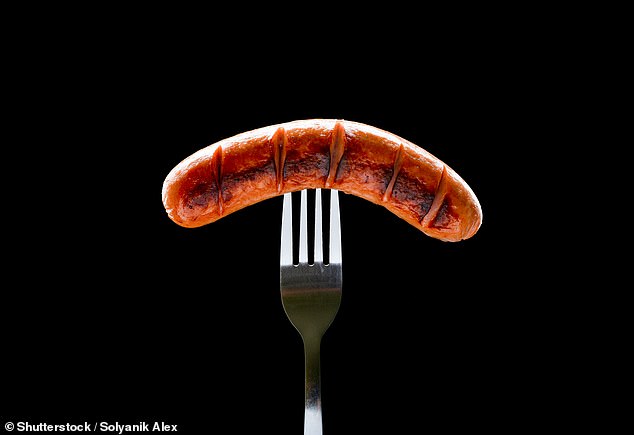
The humble pork sausage could soon be getting a makeover and made more vegetarian in a bid to make us healthier, but the ones on supermarket shelves already contain a surprising array of non-meat components, from bamboo to algae.
Legally, a pork sausage in the UK must contain 42 per cent pork. And many options on supermarket shelves are more vegetarian (containing ingredients such as seaweed, soy and bamboo) than meat.
Richmond’s thick and thin pork sausages, as well as some offered at Tesco and Iceland, meet the standards when it comes to their products, meeting the legal minimum of 42 per cent pork.
For Richmond, in addition to water and seasoning, he also added wheat and soy protein.
Walls Thick pork sausages are just 61 percent meat and also contain soy protein along with wheat and potato starch.
Soy protein is a main ingredient in many modern “fake meat” products, including Impossible Burgers and sausages, as it has a chewy, meaty texture.
Tesco’s Butcher’s Choice pork sausages, at 42 per cent meat, were enriched with wheat flour, while Iceland’s standard pork sausages contained both wheat flour and barley.
But it was Asda that topped the charts in terms of the sheer amount of non-meat ingredients in its sausages.
Both its Just Essentials Pork Sausages (51 percent meat) and its Jumbo Savory Pork Sausages (72 percent meat) contained rice flour, chickpea flour, potato starch, corn flour and were encased not in a meat product but in calcium alginate.
Calcium alginate is a modern food product derived from algae and has become the preferred sausage casing for some manufacturers due to its strong yet edible structure and ease of processing compared to traditional intestines.
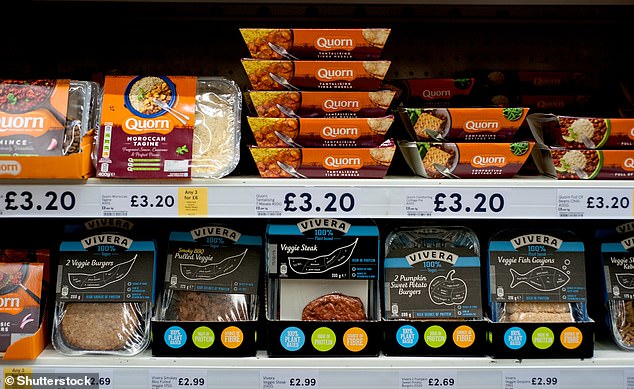
Quorn sits alongside other plant-based meat alternatives on supermarket shelves
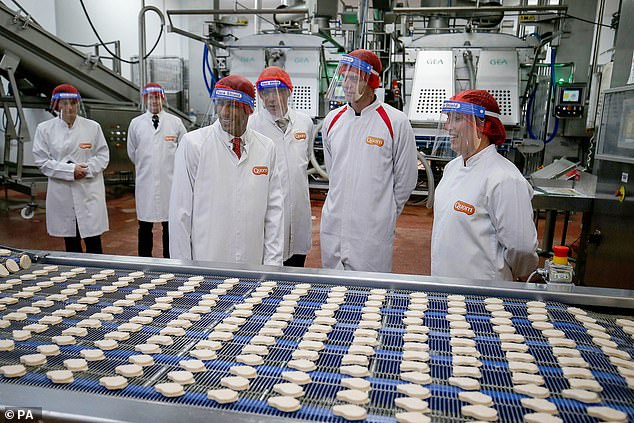
Former Prime Minister Rishi Sunak looks at the production line during a visit to Quorn headquarters
Morrison’s Best Thick Pork Sausages (90 percent meat) were another offering that had some surprising plant-based additives, including tapioca flour and psyllium, a fiber made from the seeds of plantago ovata, an herb used in Indian cooking.
Tesco’s Finest Traditional Pork Sausages (90 per cent meat) and its Standard Pork Sausages (56 per cent meat) both have bamboo fibre listed as an ingredient.
Sausages are generally not 100 percent meat and include fat and toasted bread, made from wheat, to help bind the meat and seasonings together.
The sponge cake also provides a nice texture and helps prevent the sausages from breaking up during cooking, as it absorbs the fats.
Although wheat was, and still is, one of the most widely used flours, some manufacturers opt for rice flour, so that their products are gluten-free and attract more customers.
Butchers are also keen to point out that a higher percentage of meat does not necessarily always mean a better sausage.
On the website Real bites Butcher Matt Rhoades writes: “A good breakfast sausage should be around 55 percent pork content or higher,” he said.
‘This is ideal because it produces a nice texture that is neither too heavy nor gritty.’
And for summer barbecues, sausages and mashed potatoes, Mr. Rhoades recommends people opt for sausages with at least 75 percent meat.
“This produces a nice, firm, meaty sausage, which is perfect for bangers and mash, a fancy breakfast or some delicious hot dogs on the barbecue,” he said.
Quorn Foods’ offer to market its mycoprotein products, such as sausages, is part of the company’s bid to help flexitarians – those who only eat meat occasionally for health reasons or are concerned about the environmental cost of meat consumption.
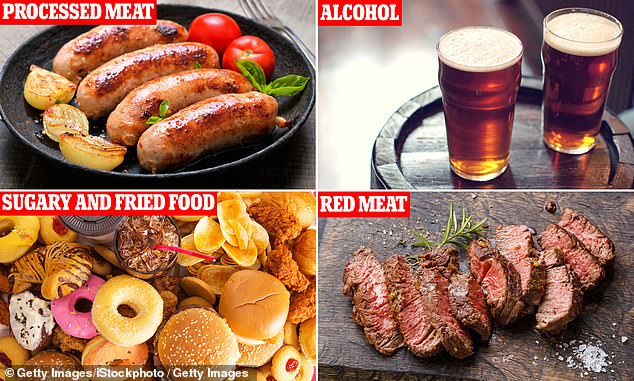
A healthy diet that limits red and processed meats, foods high in sugar, fat and salt, and alcohol has been linked to a lower incidence of cancer.
Sausages are considered a processed meat product and typically contain high levels of fat and salt, with the NHS recommending Britons cut their intake to no more than 70g per day.
A diet high in fat and salt can contribute to obesity and high blood pressure, increasing the risk of heart attacks and strokes.
Some studies have also linked eating a lot of red meat to an increased risk of bowel cancer, although Cancer Research UK says more research is needed.


